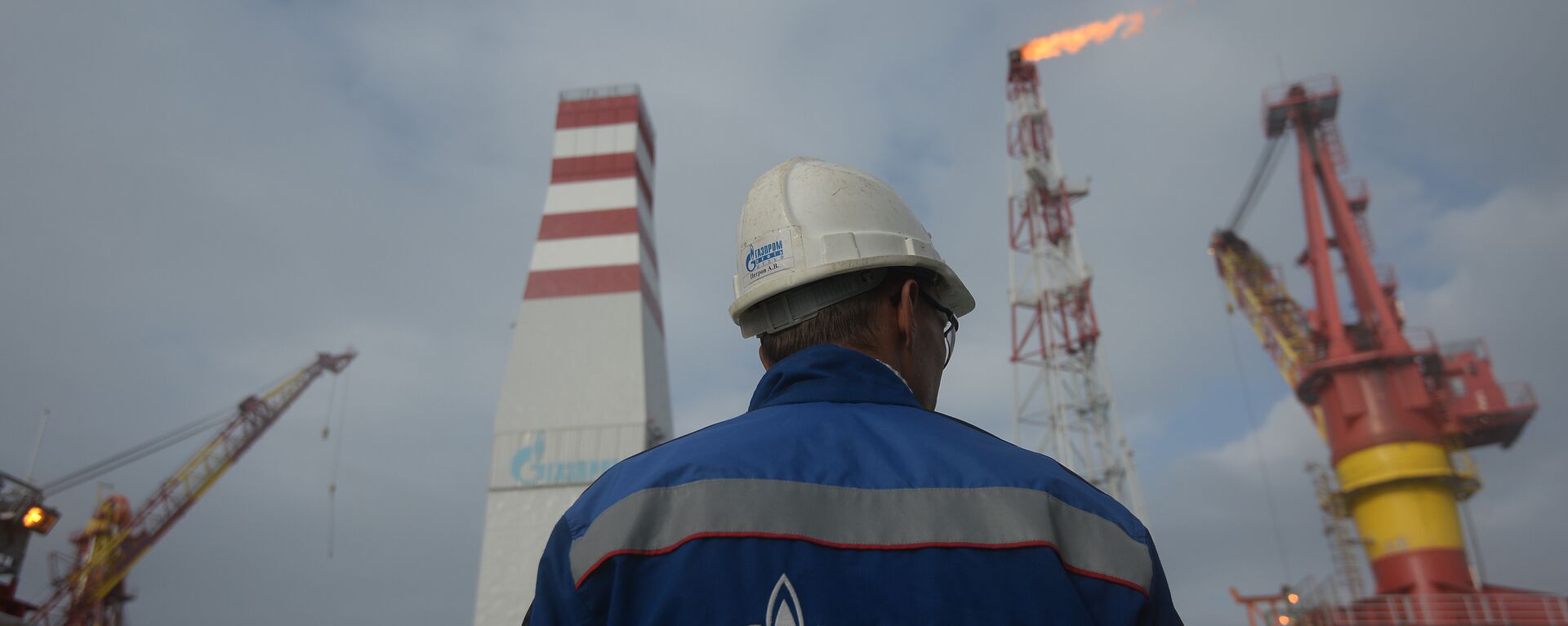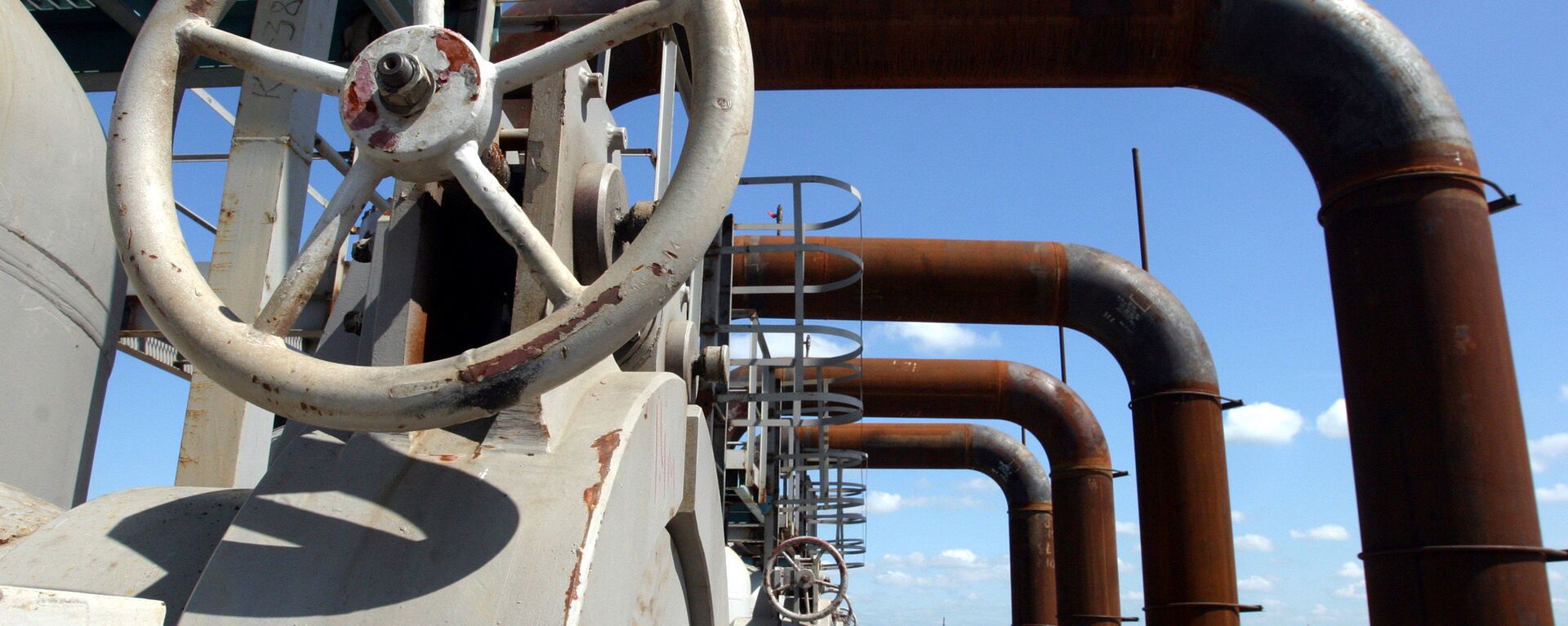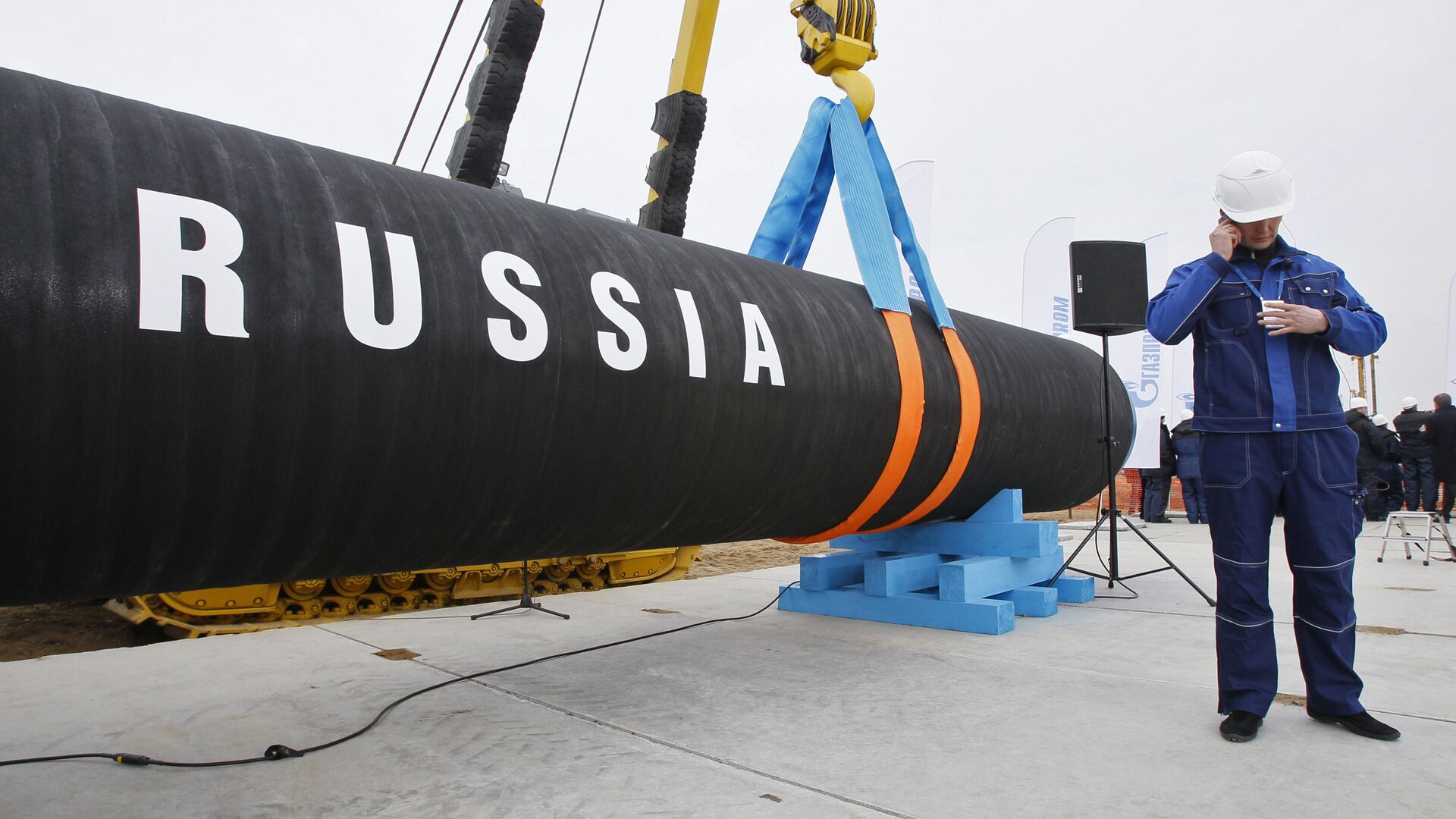https://sputnikglobe.com/20221213/prodigal-son-why-eu-cant-help-turning-to-russias-gas-next-winter-1105425329.html
Prodigal Son: Why EU Can't Help Turning to Russia's Gas Next Winter
Prodigal Son: Why EU Can't Help Turning to Russia's Gas Next Winter
Sputnik International
It appears that the EU is not ready to completely sever ties with Russia's natural gas producers. The latest poll by the Oxford Institute for Energy Studies... 13.12.2022, Sputnik International
2022-12-13T16:09+0000
2022-12-13T16:09+0000
2022-12-13T16:09+0000
analysis
us
europe
natural gas
gas hub
turkiye
opinion
lng
sanctions
germany
https://cdn1.img.sputnikglobe.com/img/07e5/07/14/1083426072_0:127:3189:1921_1920x0_80_0_0_f4d64aacf9d19223dcaf7caf15f9cc83.jpg
"It depends on whether or not the relations with Russia can be restored," Dr. Gal Luft, co-director of the Institute for the Analysis of Global Security and a senior adviser to the United States Energy Security Council, told Sputnik. "Germany and France fought several bloody wars over coal deposits in Alsace-Lorraine only to find themselves allies again. Things change in international politics and I wouldn’t rule out restoration of Germany’s energy trade with Russia, though not to the extent of dependency we saw before the [Russo-Ukraine conflict]."Previously, Russia typically supplied about 40% of Europe's natural gas. Most of the commodity reached the Old Continent through gas pipelines going via Ukraine, Belarus, and the Baltic Sea. Deliveries last year amounted to around 155 billion cubic meters (bcm).Moscow planned to boost deliveries of gas to Europe through the Nord Stream pipeline system running through the Baltic Sea to Germany. However, Nord Stream 2 was suspended by Germany because of Washington's pressure even before Moscow's special operation in Ukraine was launched on February 24. Moreover, on September 26, three out of four Nord Stream pipes were blasted by unidentified saboteurs.Nonetheless, Russia is currently considering the creation of a major gas hub in Turkey, which could be used in the future to deliver natural gas to European countries.For their part, European states appear to be on the ropes: on the one hand, they cannot completely substitute Russia's gas supplies; on the other hand, the American producers of the much-needed fuel are selling their liquefied natural gas (LNG) for top dollar. Berlin and Paris have given repeated requests to Washington, asking the Biden administration to reduce the price tag, but to no avail.Last month, Michael Kretschmer, leader of the German state of Saxony, argued that it would be "historically ignorant and geopolitically wrong" to abandon Russian hydrocarbons forever.Berlin is currently €140 ($180) per megawatt hour to import gas, which about seven times more than the average price tag between 2010 and 2020. The German government is set to spend hundreds of billions of euros to reduce energy bills for households and businesses.Still, growing energy costs could further cripple Germany's industries which cannot remain competitive if it is permanently dependent on subsidies, according to Luft. "In 2023 we will begin to see energy-intensive industries migrating to low-energy-cost environments. It is inevitable," he remarked.Europe to Face a 30 bcm Gas Gap Next YearMeanwhile, Ursula von der Leyen, head of the European Commission, acknowledged on Monday that while Europe is safe for this winter, it may face a gap of as much as 30 bcm of gas next year.When asked whether the EU could find a replacement for Russia's gas, Floros responded: "No, it is impossible, unless the EU strongly decreases its consumption with harsh economic and social consequences.""If Europe switches off all Russian imports it must fall back on coal to the detriment of its climate commitments," suggested Luft. "If Europe insists on replacing gas with gas its only way of doing so is with LNG. But LNG will always be more expensive than piped gas so the shift from piped gas to LNG means a permanent tax on European consumers, which could devastate European industry and lead to mass migration of industry to regions where energy is cheaper."But that is not all, according to Luft: "The dirty little secret behind the European energy conundrum is that the US, on which it is increasingly reliant, is not as reliable a supplier as many tend to believe – not because of politics but because of geology."The American scholar explained that US shale gas formations are "in steep geological decline." Given that, Luft doubts the US can keep up the growth in supply to meet Europe’s energy needs for decades to come."The Europeans are completely oblivious to this. Once they begin to internalize the truth about the North American gas picture they will have to recalibrate their energy policy," he said.A Year From Now EU Could be Led by New LeadershipWhile the International Energy Agency (IEA) is promoting a scenario under which Russian gas flows into Europe falling to a trickle by 2025 and to zero by 2028, the reality is likely to have nothing in common with this prognosis, according to the observers.He drew attention to the fact that "so far, despite the various efforts to starve Russia economically, the Russian economy is alive and kicking and in recent months the ruble has been one of the most stable currencies." While Europe is trying to step up sanctions pressure, one may see "the emergence of some revisionist thinking based on the understanding that it would take much more than sanctions to address this crisis," according to the scholar.Eventually, the political landscape may shift dramatically, prompting Europe to try to mend fences with Russia. The observers do not rule out such a scenario.
https://sputnikglobe.com/20221213/history--geopolitics-suggest-russia-may-reclaim-its-role-of-key-gas-supplier-to-eu-1105408544.html
https://sputnikglobe.com/20221206/europe-unable-to-replace-all-of-russian-gas-supply-with-other-sources-eu-energy-chief-says-1105113614.html
turkiye
germany
Sputnik International
feedback@sputniknews.com
+74956456601
MIA „Rossiya Segodnya“
2022
News
en_EN
Sputnik International
feedback@sputniknews.com
+74956456601
MIA „Rossiya Segodnya“
Sputnik International
feedback@sputniknews.com
+74956456601
MIA „Rossiya Segodnya“
eu gas consumption, russian natural gas, german industries, energy crunch, recession, us lng
eu gas consumption, russian natural gas, german industries, energy crunch, recession, us lng
Prodigal Son: Why EU Can't Help Turning to Russia's Gas Next Winter
It appears that the EU is not ready to completely sever ties with Russia's natural gas producers. The latest poll by the Oxford Institute for Energy Studies indicated that a whopping 40% of European executives, policymakers, and consultants believe that the bloc could make Russia its key supplier again.
"It depends on whether or not the relations with Russia can be restored," Dr. Gal Luft, co-director of the Institute for the Analysis of Global Security and a senior adviser to the United States Energy Security Council, told Sputnik. "Germany and France fought several bloody wars over coal deposits in Alsace-Lorraine only to find themselves allies again. Things change in international politics and I wouldn’t rule out restoration of Germany’s energy trade with Russia, though not to the extent of dependency we saw before the [Russo-Ukraine conflict]."
Previously, Russia typically supplied about 40% of Europe's natural gas. Most of the commodity reached the Old Continent through gas pipelines going via Ukraine, Belarus, and the Baltic Sea. Deliveries last year amounted to around 155 billion cubic meters (bcm).
Moscow planned to boost deliveries of gas to Europe through the Nord Stream pipeline system running through the Baltic Sea to Germany. However, Nord Stream 2 was suspended by Germany because of Washington's pressure even before Moscow's special operation in Ukraine was launched on February 24. Moreover, on September 26, three out of four Nord Stream pipes were blasted by unidentified saboteurs.
Nonetheless, Russia is currently considering the creation of a major gas hub in Turkey, which could be used in the future to deliver natural gas to European countries.
For their part,
European states appear to be on the ropes: on the one hand, they cannot completely substitute Russia's gas supplies; on the other hand, the American producers of the much-needed fuel are
selling their liquefied natural gas (LNG) for top dollar. Berlin and Paris have given repeated requests to Washington, asking the Biden administration to reduce the price tag, but to no avail.
Last month, Michael Kretschmer, leader of the German state of Saxony, argued that it would be "historically ignorant and geopolitically wrong" to abandon Russian hydrocarbons forever.
Berlin is currently €140 ($180) per megawatt hour to import gas, which about seven times more than the average price tag between 2010 and 2020. The German government is set to spend hundreds of billions of euros to reduce energy bills for households and businesses.
Still, growing energy costs could further cripple Germany's industries which cannot remain competitive if it is permanently dependent on subsidies, according to Luft. "In 2023 we will begin to see energy-intensive industries migrating to low-energy-cost environments. It is inevitable," he remarked.

13 December 2022, 08:21 GMT
Europe to Face a 30 bcm Gas Gap Next Year
Meanwhile, Ursula von der Leyen, head of the European Commission, acknowledged on Monday that while Europe is safe for this winter, it may face a gap of as much as 30 bcm of gas next year.
"Taking into account that Europe is 'probably' safe this winter unless it will be colder than last year, nobody knows where these 30 billion cubic meters will come from. They hope for US LNG," Demostenes Floros, senior energy economist at CER-Centro Europa Ricerche and Contract Professor of the Master "Italy-Russia International Relations," University of Bologna, told Sputnik.
When asked whether the EU could find a replacement for Russia's gas, Floros responded: "No, it is impossible, unless the EU strongly decreases its consumption with harsh economic and social consequences."
"If Europe switches off all Russian imports it must fall back on coal to the detriment of its climate commitments," suggested Luft. "If Europe insists on replacing gas with gas its only way of doing so is with LNG. But LNG will always be more expensive than piped gas so the shift from piped gas to LNG means a permanent tax on European consumers, which could devastate European industry and lead to mass migration of industry to regions where energy is cheaper."
But that is not all, according to Luft: "The dirty little secret behind the European energy conundrum is that the US, on which it is increasingly reliant, is not as reliable a supplier as many tend to believe – not because of politics but because of geology."
The American scholar explained that US shale gas formations are "in steep geological decline." Given that, Luft doubts the US can keep up the growth in supply to meet Europe’s energy needs for decades to come.
"The Europeans are completely oblivious to this. Once they begin to internalize the truth about the North American gas picture they will have to recalibrate their energy policy," he said.

6 December 2022, 17:58 GMT
A Year From Now EU Could be Led by New Leadership
While the International Energy Agency (IEA) is promoting a scenario under which Russian gas flows into Europe falling to a trickle by 2025 and to zero by 2028, the reality is likely to have nothing in common with this prognosis, according to the observers.
"[N]ext winter Europe will be 'at war' with itself," forecast Luft. "It is highly unlikely that European solidarity can be maintained with no end in sight. At some point people will begin to demand answers: where does the current path lead us? Europe is running on fumes. People and businesses' savings are being depleted and it is still unclear if we are out of the woods when it comes to the pandemic. I also see a rethinking of the widely held axiom that sanctions are the be-all and end-all solution to dealing with Russia."
He drew attention to the fact that "so far, despite the various efforts to starve Russia economically, the Russian economy is alive and kicking and in recent months the ruble has been one of the most stable currencies." While Europe is trying to step up sanctions pressure, one may see "the emergence of some revisionist thinking based on the understanding that it would take much more than sanctions to address this crisis," according to the scholar.
Eventually, the political landscape may shift dramatically, prompting Europe to try to mend fences with Russia. The observers do not rule out such a scenario.
"I know, today this sounds unthinkable but a year from now Europe could be led by a completely different cast of characters with very different worldview than the current leadership," Luft concluded.




